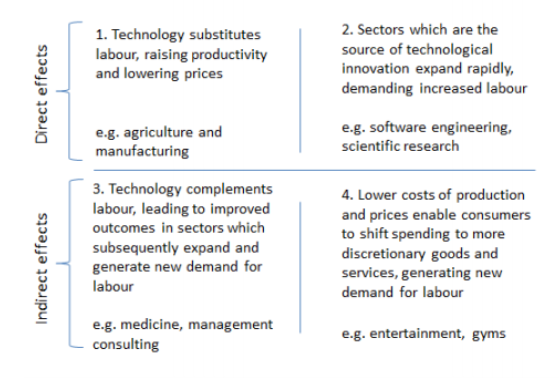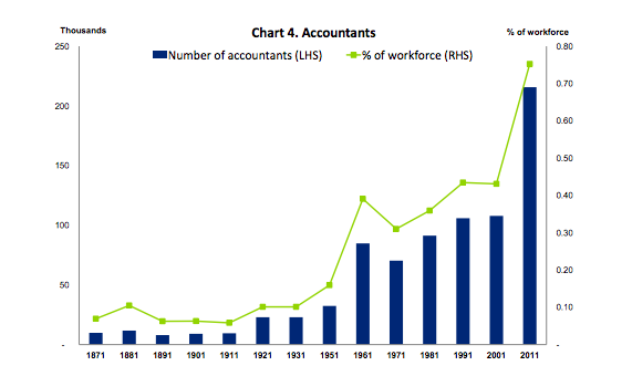New research from Deloitte has revealed that technology has been consistently creating jobs since employment records began, despite common belief that the opposite is true.
By trawling of employment data in England and Wales dating back to 1871, Deloitte’s research shows the extent of job creation from technological innovation and measures it against the level of jobs which have been replaced, by technology.
When analysing technological roles specifically, the consultancy firm found that in the last 35 years, two of the top ten fastest growing UK occupations have been in the technology sector. IT managers employed in the UK has risen by a factor of 6.5, to over 327,000. This is coupled with the rise of programmers and software developers by a factor of three, to more than 274,000.
For more on theories of tech, employment & evolution, check out the above
Deloitte recognises that there are jobs which have been replaced by technology, largely in what they refer to as ‘muscle power’ occupations such as manufacturing and labouring. The number of telephone operators rose by a factor of 40 in the 100 years to 1971 but this has since dropped due to automated switchboard, the internet and mobile telecommunications.
Interestingly, the focus of the report is not solely concentrated on direct job creation and job destruction as a result of technological advancement, because they see this as relatively clear. However, what is not yet clear is the impact technology has had on sectors such as education, medicine and accountancy through improvements in specialist knowledge around complex areas. To help explain the difference between indirect and direct effects of technology on employment, Deloitte produced the following diagram:
 Workers in these sectors are therefore better equipped to provide benefit to customers from specialist knowledge and allow them to navigate complexity; thus raising productivity and positive outcomes. Deloitte state: “This can be seen most spectacularly in medicine; but easy access to information and the accelerating pace of communication have revolutionised most knowledge-based industries.
Workers in these sectors are therefore better equipped to provide benefit to customers from specialist knowledge and allow them to navigate complexity; thus raising productivity and positive outcomes. Deloitte state: “This can be seen most spectacularly in medicine; but easy access to information and the accelerating pace of communication have revolutionised most knowledge-based industries.
Thus, far from technology and jobs being in opposition, in areas including medicine, education and professional services, employment and technology have marched together. The 1871 census records that there were 9,832 accountants in England and Wales. Their numbers have risen twenty-fold in the last 140 years to 215,678.”





